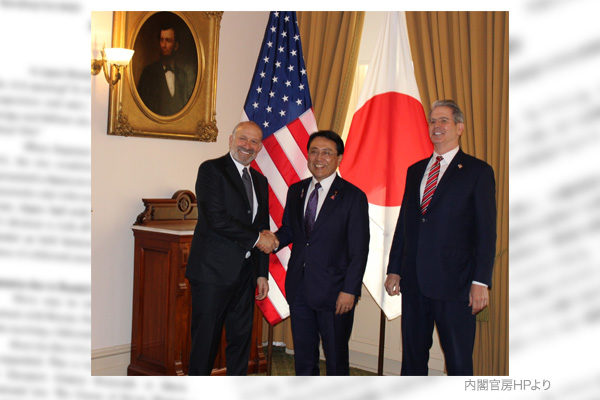Japan’s economic revitalization minister Ryosei Akazawa held the fifth round of ministerial tariff negotiations with the United States. For the latest round, he visited Washington for the third straight week, an unusually high frequency. The frequency is not the only thing unusual. The U.S. side is engaged in tariff negotiations also with other countries including China, stretching working-level U.S. officials too thin. The three U.S. ministerial-level participants in the talks have slightly different negotiating stances. While the negotiations are sail to be led by moderate Treasury Secretary Scott Bessent, automobile tariffs on which Japan puts emphasis are under the jurisdiction of the Commerce Department and hardline Commerce Secretary Howard Lutnick holds the key. And the two secretaries are rivals to each other. Moreover, it is difficult to grasp the intentions of President Donald Trump who has the final say.
Amid these difficulties facing Japan’s negotiating team, insensitive information leaks that harm Japan’s national interests are too much to tolerate.
Insensitive leaks provoking China
One of such leaks came on May 30, just before the fourth round of ministerial tariff negotiations between Japan and the U.S.
Japan was reported to offer bilateral cooperation in rare earth procurement to the U.S. The offer is designed to deepen bilateral cooperation in the field of economic security against China, the report said. China, which accounts for most of global rare earth production, imposed restrictions on exports of seven types of rare earths in April in response to U.S. tariffs. As rare earths are indispensable for the production of high-tech products, there is a growing sense of crisis on the U.S. side. Japan is considering supporting the U.S. with rare earth processing, smelting, and recycling technologies, according to the report. Japan is also considering bilateral cooperation in smelting rare earths in third countries, the report said.
There was another shocking leak report on June 5, just before the fifth round of the ministerial negotiations.
This time, the report’s headline was provocative: “Japan to propose China countermeasure package” The report said that Japan would combine cooperation on rare earth and critical mineral with Japan’s expansion of liquefied natural gas (LNG) imports from the U.S., Japan’s purchases of computer chips made by U.S. companies, and other measures into a bilateral cooperation package to counter China.
When I was responsible for negotiations with the U.S. as a bureaucrat at the Ministry of Economy, Trade, and Industry, I was also troubled by leak reports. Various leaks have come this time again, including reported shipbuilding and LNG cooperation proposals. However, the two leaks on rare earth cooperation will clearly provoke China by emphasizing the aspect of countering China. Inherently, they are more serious than other leaks.
Rare earth cooperation should be discussed quietly
China’s export restrictions on rare earths are exerting impacts on industry, becoming a major battlefield for the U.S.-China confrontation. For that reason alone, rare earth cooperation is important as a bargaining chip in Japan’s current negotiations with the U.S. Japan itself is also subject to the Chinese rare earth export restrictions that have serious impacts on the Japanese industry. And the restrictions represent a serious diplomatic issue as they can be arbitrarily enforced by China.
It goes without saying that U.S.-Japan cooperation is extremely important. But it should be done quietly behind the scenes. Framing it as a bold stance against China is clearly counterproductive and detrimental to national interests. I am not criticizing the media for reporting the leaks. Sources or motives of the leaks are unknown. But such leaks could undermine negotiators’ efforts. The Japanese government should tighten its reins promptly in order to secure future progress in the U.S.-Japan negotiations,
Masahiko Hosokawa is a professor at Meisei University and a former director-general of the Trade Control Department at Japan’s Ministry of Economy, Trade and Industry. He is also a Planning Committee member at the Japan Institute for National Fundamentals.


